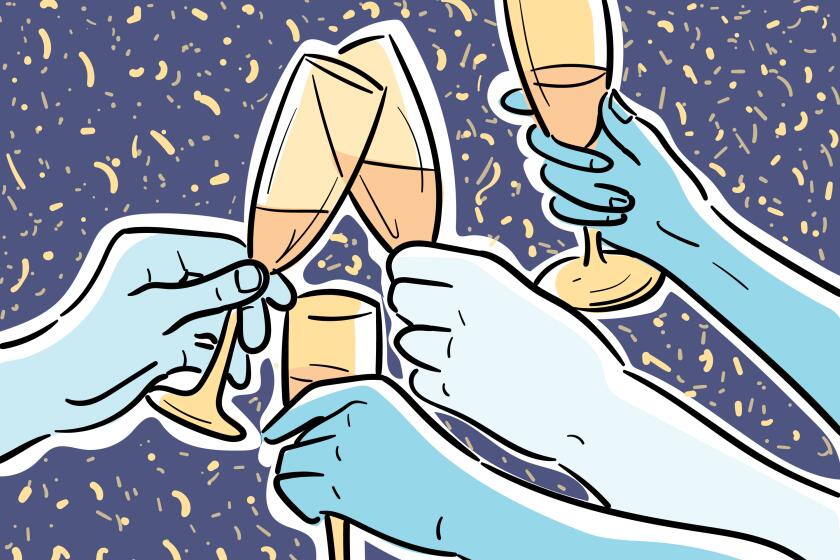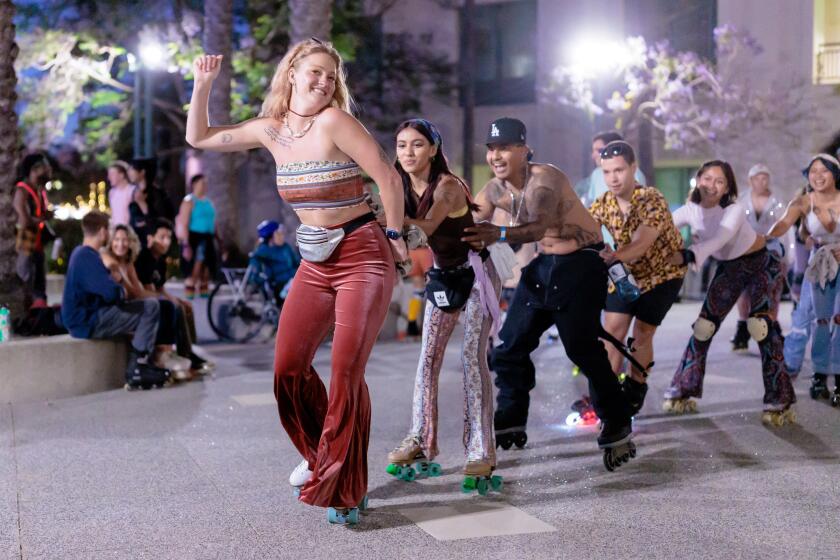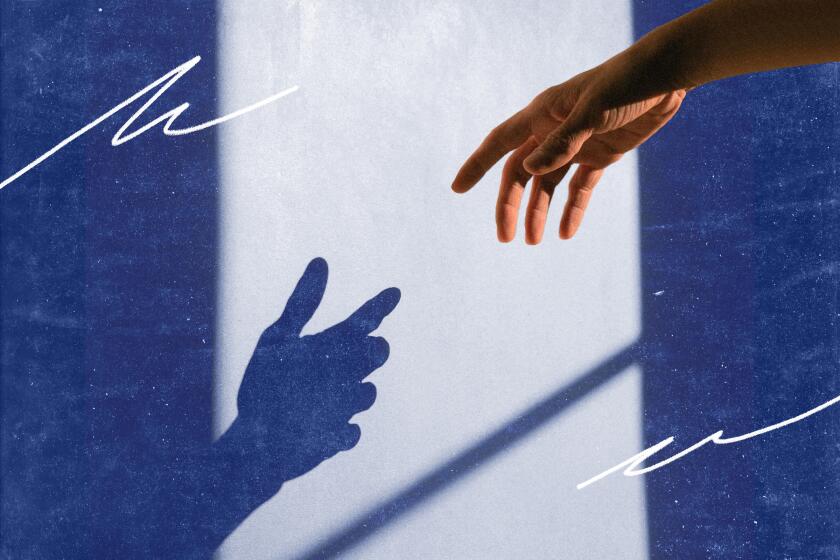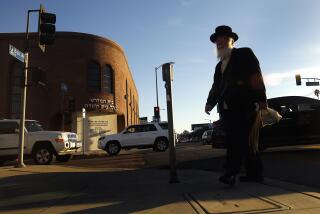Opinion: How Rosh Hashana encourages us to fight the loneliness epidemic
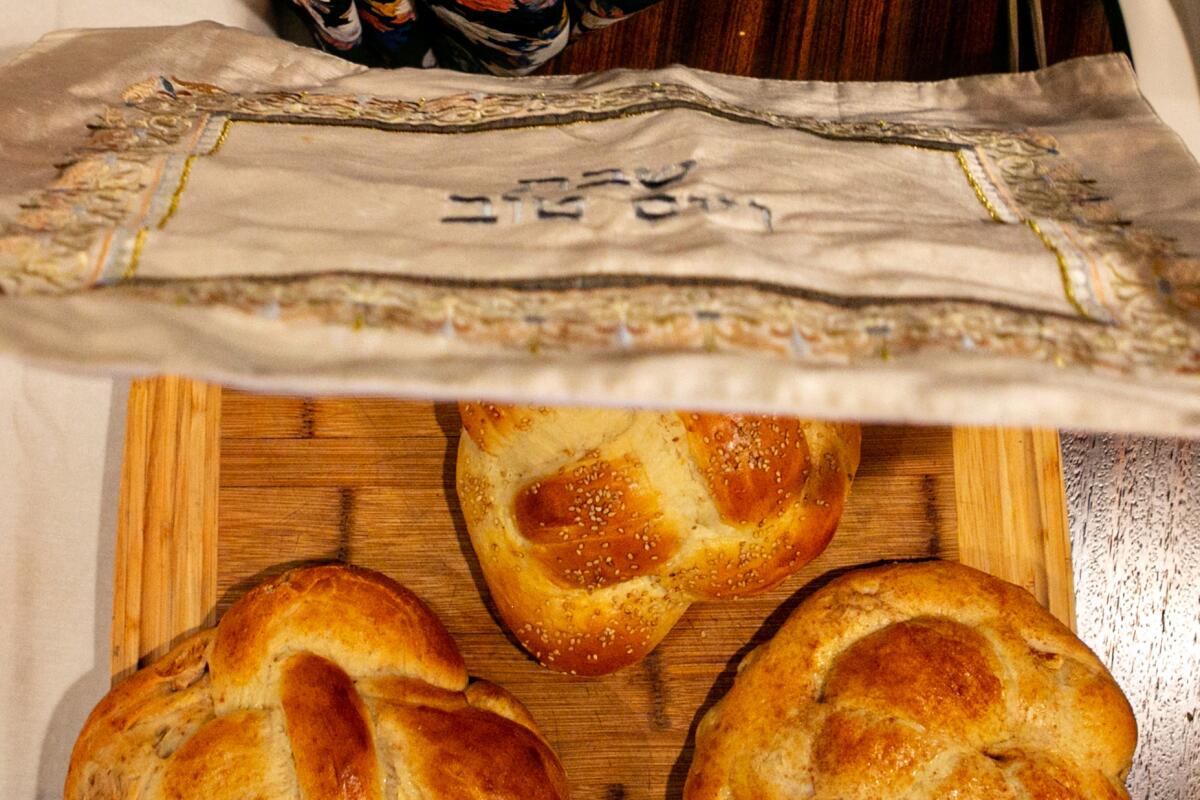
Three years ago, on Rosh Hashana, the Jewish New Year, we stood alone in a sanctuary leading services through a video camera. This year, while we are again able to gather, the lasting effects of COVID are not behind us. Left in its wake are community members battling increased and dangerous levels of loneliness, an ailment that is devastating on its own, and also directly linked to strokes, heart disease, dementia and suicide.
Sadly, this is not unique to the Jewish community. It is affecting people far and wide. But the Jewish New Year, which starts Friday, can provide valuable lessons and encouragement to all of us.
Resolutions help soften the blow of what we failed to accomplish last year, and they give us hope for who we might become.
Britain, Sweden and Japan have appointed ministers of loneliness. And U.S. Surgeon General Dr. Vivek Murthy warns of a growing problem here in the U.S. He cites staggering statistics: Loneliness is as dangerous as smoking 15 cigarettes a day and more lethal than consuming half a dozen alcoholic beverages. A world once locked to prevent physical disease has resulted in far too many Americans choosing to socially shrink.
Student absenteeism is rising at an alarming rate. Even with schools open, children riddled with anxiety are staying home with parents supporting these choices. What’s one day of missing school? Unfortunately, one day quickly becomes multiple days as isolation is reinforcing.
Adults are engaging in similar behavior. Less than half of Americans belong to a house of worship. As rabbis, we see this happening around us, and much more so post COVID. Zoom is comfortable. Committing to a community and engaging in once familiar patterns of prayer, ritual and celebrations now feels foreign and frightening. It is easier to just not show up.
We all need to be expanding our social circles. What better time than summer to play outside and make some new friends?
While our social and spiritual connections decline, there is a rampant increase in hate crimes, with a 22% increase in the most populated cities. The Anti-Defamation League reports that antisemitic incidents are up a staggering 36%. Online hate and harassment are experienced by over 50% of the American population, with Black and Muslim Americans experiencing the most noticeable increase. Universities, schools and communal organizations have spent hours discussing the uptick in bomb threats to our institutions. It shouldn’t be surprising to see a correlation between social retreat and rising prejudice; retreating leads to fear of the other.
But as the great Jewish philosopher Maimonides observed, “positive behavior characteristics are not acquired by doing (a one time) great positive act but rather through the repetition of many positive acts.” This is akin to the lessons taught by cognitive behavioral therapists. Put yourself in uncomfortable situations. Desensitize yourself. Do this enough and each time will get easier. Retreating, avoiding and running only beget more retreating, avoiding and running. It’s a vicious cycle that further cements loneliness, anxiety and depression.
The season of the Jewish High Holy Days, though, offers encouragement. First, we are commanded to be together. We don’t pray alone. In fact, many of our holiest prayers are phrased in the plural. When we confess on Yom Kippur, the Jewish Day of Atonement, we don’t say, “I have sinned”; we say, “We have sinned,” “We have gone astray,” and “We have led others astray.” It is a communal confession said in a communal voice.
To thrive in a lonely century, we’ll need more goods and services designed to deliver connection such as AI “friends” and daytime discos for retirees.
We also read the story of Jonah. Jonah runs away from God, hiding in the belly of a fish, thinking that if he cowers at the bottom of the sea, no one will find him. And yet, it is exactly when Jonah ultimately returns and reengages that his desolation and despair begin to fracture.
Spiritually and practically, faith and community institutions must support the individual in this difficult return, and that starts with mental health. We need to invest in mental health services and make them accessible, available and normalized. In 2020, we opened the Sinai Temple Mental Health Center and have spent the last three years shedding fossilized layers of stigma. The center’s work is just beginning.
Equally important, we must help people reconnect within their larger communities. Providing structured avenues for individuals to safely reengage and shed fear of themselves and fear of each other is crucial. Together with Pastor John-Paul Foster of Faithful Central Bible Church, Father Ed Benioff of Church of The Good Shepherd, and Omar Qudrat of the Muslim Coalition for America, we have worked to create moments of unity. Our communities are fostering environments of connectedness.
The Jewish High Holy Days are marked by the sound of the shofar, an alarm that asks us to wake up. This year, no matter where you are in your religious journey, reengage with this world and know that you are not alone.
Rabbis Nicole Guzik and Erez Sherman serve as co-senior rabbis at Sinai Temple, the largest Conservative synagogue in Los Angeles.
More to Read
A cure for the common opinion
Get thought-provoking perspectives with our weekly newsletter.
You may occasionally receive promotional content from the Los Angeles Times.
